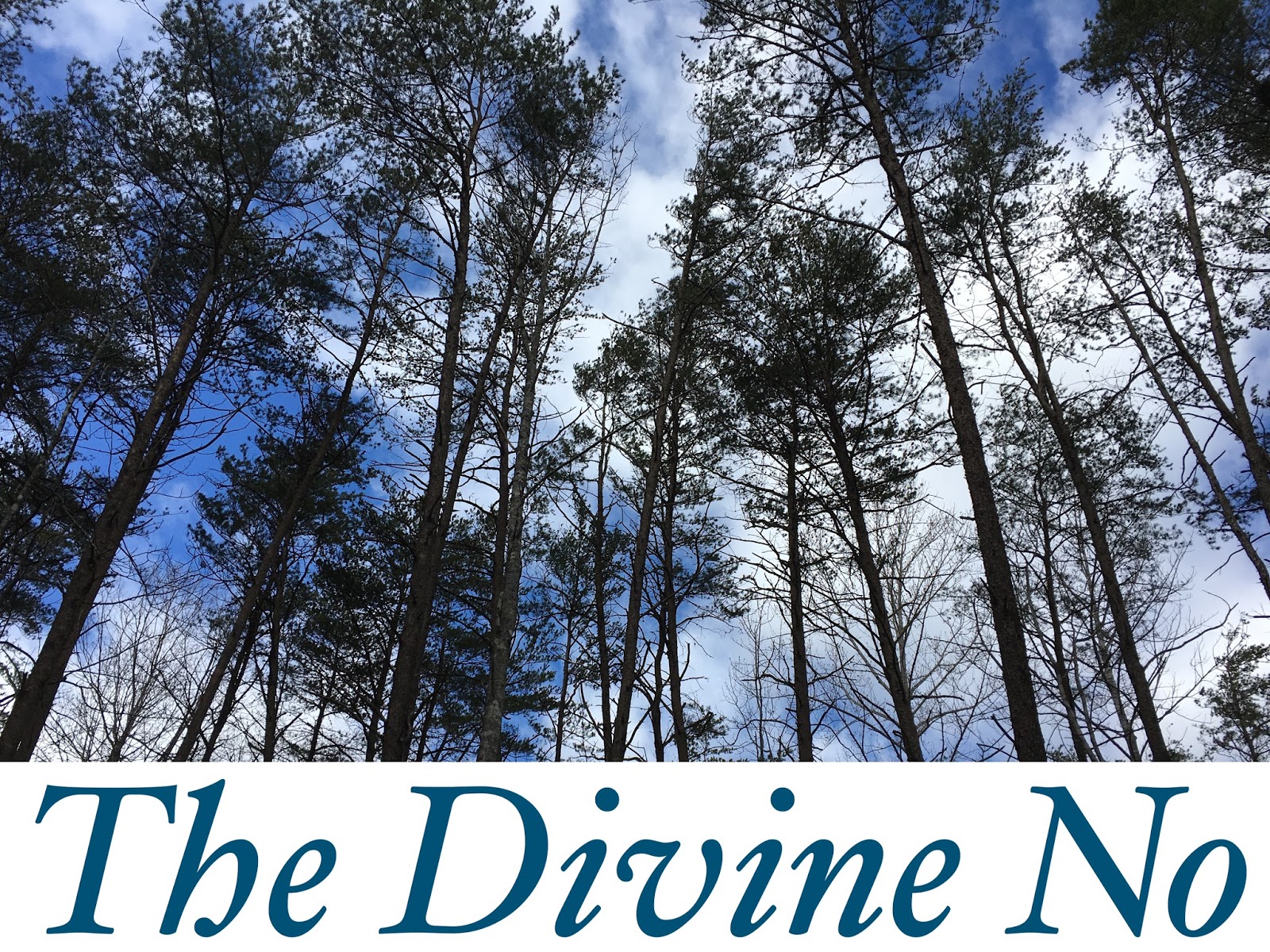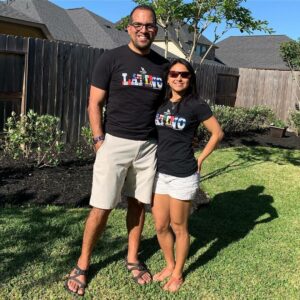
Life has felt pretty full lately, so this week I went away to spend 24 hours alone with the Lord. The main questions I wanted to ask Him were:
- God, what is NOT your will for me?
- What are the “good” things I’m doing that You want me to stop doing?”
My Area Director, David Page, sent me this article below to read in preparation for my time away. It was timely and convicting. If you’re feeling exhausted and spread too thin, it was written for you.
Here’s one paragraph that particularly struck me:
“Our unwillingness to say “no” may be a modern form of idolatry. We enthrone our own desires, our pride, and the lure of appearing busy. It may be that we still feel that we must prove ourselves to God by doing good works. Perhaps it is just too painful to sit down alone and face our limitations. We need to be ruthless if we find ourselves always too busy, too tired, or too discouraged. In the name of Christian witness or service, we may have abdicated our responsibility to consider what opportunities are God’s will for us, and what ones pull us away from higher priorities.“
You can download the entire article here or read it below.
May the Lord bless your “no.” -Drew
“THE DIVINE NO” by Alice Fryling
If I were a prophet, in the Old Testament tradition, I would
put on my long robes, gather a crowd, and call out, “God says, ‘No!’” I would lean over and point my finger at the
distraught pastor who cannot bear the burdens of her congregation, and I would
say, “Let go.” I would look at the
harried mother hurrying from the office to the day care center to a PTA
meeting, and I would say, “Don’t go!”
And I would grab the tired executive who was all week on a trip, came
home to kiss the children, and is now on his way to the church baseball league,
and I would put my face close to his and say, “Slow down!”
Indeed, there are prophets in our day who are saying just
that. Richard Foster in “Freedom of
Simplicity” calls Christians to a life of simply doing what God wants, rather
than being pushed and pulled by inward and outward demands. He quotes Thomas Kelly, “We have seen and
known some people who seem to have found a deep center of Living, where the
fretful calls of life are integrated, where no, as well as yes, can be said
with confidence.” Foster describes that
confidence as simplicity. It could also
be a more difficult act of obedience than saying yes.
When I say no to a good idea for the sake of a better idea
or activity, I am acknowledging that I am a creature rather than a
creator. I cannot do everything that
comes before me. Even good ideas, if
they are not the will of God for me, can become the vehicles of pride, sin,
fatigue, and depression.
Rather than take responsibility for these symptoms of
imbalance, we often blame God for our busy lives. How many times have we heard, “Oh, I am just
so busy (doing good deeds, Christian services, and fulfilling spiritual obligations).” I suspect that our busyness stems from
complications we have brought into our lives (our homes, social and political
clubs, gardens, even some employment).
But even if we could prove our busyness is only doing “God’s work,” it
is blasphemous to imply that our loving Father wants us to do more than He has
equipped us to do.
Common to the lifestyles of busyness is a “bless-this mess”
syndrome. It goes like this. I see a need. Or I have an idea. Or some one
taps me for a project. Without carefully
evaluating the request for my time, I say yes because I like to help people, I
like to be creative, and I don’t like to let people down. Then when the going gets rough, I ask God to
bless me anyhow. “Please help me to make
it. Take care of my health, my family,
even my prayer life so I can make it through this crisis.” In other words, “Please, Lord, bless this
mess.”
Everyone gets into predicaments like that occasionally. But when one crisis bumps into another, we
need to stop and see what God wants for us. How can I hear the still small voice of God when I don’t even have time
to pray? How can the breeze of the Holy
Spirit sweep into my life when I am stirring up endless dust storms on my own?
Frequently these predicaments arise because we fail to
acknowledge that in saying yes to one activity, we are pre-forced to say no to
another. We simply can not do two things
at once. This is clear in Paul’s famous
“Macedonian call” (Acts16: 6-10), which has been used at hundreds of missionary
conferences to spur people on to service. While I would never discourage someone from following a true Macedonian
call, it is interesting to note that twice Paul was told to say no, before he
was told to go. “The Holy Spirit forbade
him” to speak the word in Asia, and then “did not allow” them to go into
Bithynia. If Paul had not said no to
Asia and Bithynia, he might never have ended up in Macedonia. By saying yes to Macedonia, he was saying no
to anywhere else at the time.
This may sound like simple mathematics. But consider the subtlety of one practical
example. If I say yes to leading a Bible
study, that study may take an hour to prepare and an hour to present. And if I want to befriend the people in the
study, it may take another two to three hours to present. I may be very eager to do this, but if I do a
good job, there will also be an emotional and spiritual drain, so that another
hour or two of restoration is involved. So, my Bible study from 9-10am once a week means that I must say no to
at least six hours worth of other activities.
Many of us will say yes to leading such Bible studies. But if we do, we may need to say no to other
things—building the addition on our house, enlarging our garden, or even
advancing at work. Or, we may decide we
need to say no to the Bible study in order to give our time to something
else. The issue is not just whether we
want to do something or whether we are gifted to do it. While these things are important, the primary
issue is whether or not it is God’s will for us at the time.
Does this sound obvious? It is only so on paper. In order
to say no to something we want to do, we almost always have to let go of
something we value.
Peter, in Acts 10, went through a reorientation of values
when God told him to go meet Cornelius, a Gentile. Peter said, “No, Lord, I have never…” When God tells us to slow down, we might say,
“No, Lord, I have never turned you down on a call to serve. I have always been a busy person. I believe God is telling some of us that we
need to let go of the value we place on service, availability and busyness, and
take up the value God places on quietness, trust and peace.
Recently, I have had to let go of the high value I place on
being available to friends. I do not
love my friends any less, but when I try to befriend too many people at once, I
find I don’t have the physical and emotional capacity I need. If I will not give up part of what I value, I
end up giving up something I value even more.
I become so enervated that I have little to offer any friends, my
husband, my children or my Lord.
This “giving-up” is a very painful process. It is a dying to myself. I really feel good saying yes to requests for
my time and talent. But that immediate
reward soon tarnishes if I am expending my energies on things God has not
called me to do.
Our unwillingness to say no may be a modern form of
idolatry. We enthrone our own desires,
our pride, and the lure of appearing busy. It may be that we still feel that we must prove ourselves to God by
doing good works. Perhaps it is just too
painful to sit down alone and face our limitations. We need to be ruthless if we find ourselves
always too busy, too tired, or too discouraged. In the name of Christian witness or service, we may have abdicated our
responsibility to consider what opportunities are God’s will for us, and what
ones pull us away from higher priorities.
The author of Hebrews spoke strongly to those who fail to
enter the rest of God.
“For the good
news came to them: but the message which they heard did not benefit them,
because it did not meet with faith in the hearers” (Heb.4: 2).
The good news
God gives us about our lifestyle is that “in returning and rest you shall be
saved; and in quietness and in trust shall be your strength”(Is. 30:15).
“It is in vain that you rise up early, to go
late to rest, eating the bread of anxious toil; for he gives to his beloved in
sleep” (Ps. 127:2).
“God is not a God of
confusion but of peace” (I Cor. 14:33).
If we fail to experience peace, order and quiet in our lives, it is our
fault, not God’s.
A life of peace and simplicity is not a life of leisure and
self-gratification. If that is our goal,
we “ask wrongly, to spend it on our own passions”(Jas. 4:3). If we find leisure and gratification in our
lives, they are gifts from our loving Father, to refresh us and enable us to
fulfill His calling. It is clear in
Ephesians that God has good works planned for each of us to do. In our busy, complex culture, we need to pray
for the courage to do only those good works. It takes courage to be simple. Sometimes, it is embarrassing because we are misunderstood. Always it takes the glory away from ourselves
and gives it to the Father.
Discerning between what is the will of God and what is not
is the critical issue. Much has been
written about how to know the will of God. Perhaps something should be said about how to know what the will of God
is not.
I would like to suggest five
symptoms of the lifestyle, which may mean that the will of God is not being
done.
- If your inner life is seldom joyful, seldom
peaceful, seldom ordered, then you are not living in accordance with Scripture. - Your children, those who look to you for
emotional and spiritual support are frequently lonely, discouraged or
disappointed, it may be that you are not available to be used by God in their
lives. - If, as you consider an activity, you feel
overwhelmed emotionally or experience physical signs of stress (stomach
tightening, extreme fatigue, headaches), you need to STOP and ask God quietly
if this is His will for you. Not all
that God wants us to do is easy, but we are taught to test the spirits (I John
4:1), and it may be that God will use physical and emotional signs to indicate
a false spirit prompting us to do something. - If you are too busy to pray about an activity,
you are too busy. - If you are too busy to handle an occasional
interruption or emergency, you are too busy.
Have you ever wondered why prison interrupted Paul’s ministry? Perhaps
God used it to slow down Paul so that he would write letters to the
churches. “A man’s mind plans his ways,
but the Lord directs his steps” (Prov. 16:9).
If your schedule is so tight you cannot meet the unexpected with
confidence, then you are too busy.
Crisis, stomach pains and unhappy…the best ways to learn
God’s will. I find that virtually every
day of my life there is more to do than time to do it. Not everyone is like that, but for those of
us who are, we need to figure out how to choose between what is God’s will for
us and what is not.
One day I made a list of my expectations for a given
week. Then I listed the number of hours
I had at my disposal. My expectations
exceeded reality by almost ten hours!
That meant that I was expecting to do ten hours of activities which were
not God’s will for me. What a sobering,
painful conclusion. But what freedom it
brought to come to the Lord and say, “What is it that you don’t want me to
do?” It is God’s gift to us to be able
to work hard, every day, in His service, and not live with a sense of
unfulfilled expectations.
One of the reasons we have so much difficulty experiencing
this gift is that we have taught ourselves to live in crisis. A crisis may motivate us to action more than
a desire to please God. How much better
to come to Him freely, and frequently, motivated by a desire to do His will
rather than survive a crisis.
In this regard, I know of no adequate substitute for the
daily quiet time. Because of my tendency
to want to do more than I can, I desperately need to be confronted with God’s
thought in Scripture each day, and to be very quiet before Him as I sort out
His will. If my days seem to be more
than I can bear, I dare not leave my devotions until there is a sense of order
and peace. Perhaps I need to go through
the pain of giving up an outdated value, a selfish desire, or a pressure I feel
from some source other than God.
“Come to me, all you
who are weary and burdened and I will give you rest. Take my yoke upon you and learn from me, for
I am gentle and humble in my heart, and you will find rest for your souls.”
(Matt.11: 28-29).
May God give us the grace to willingly live with the yoke we
have acknowledged, to find rest, to find simplicity, to find His will only for
our lives.



